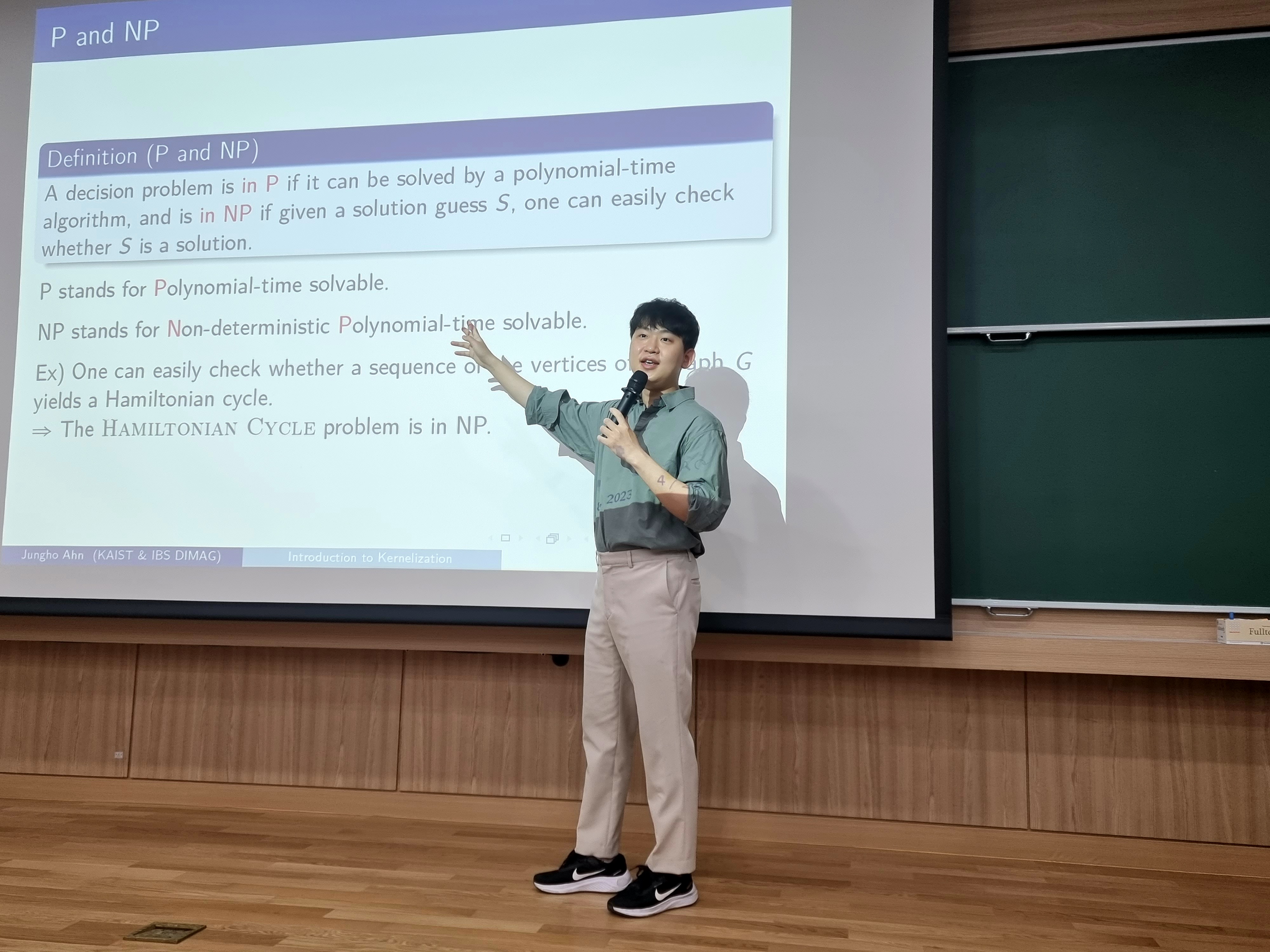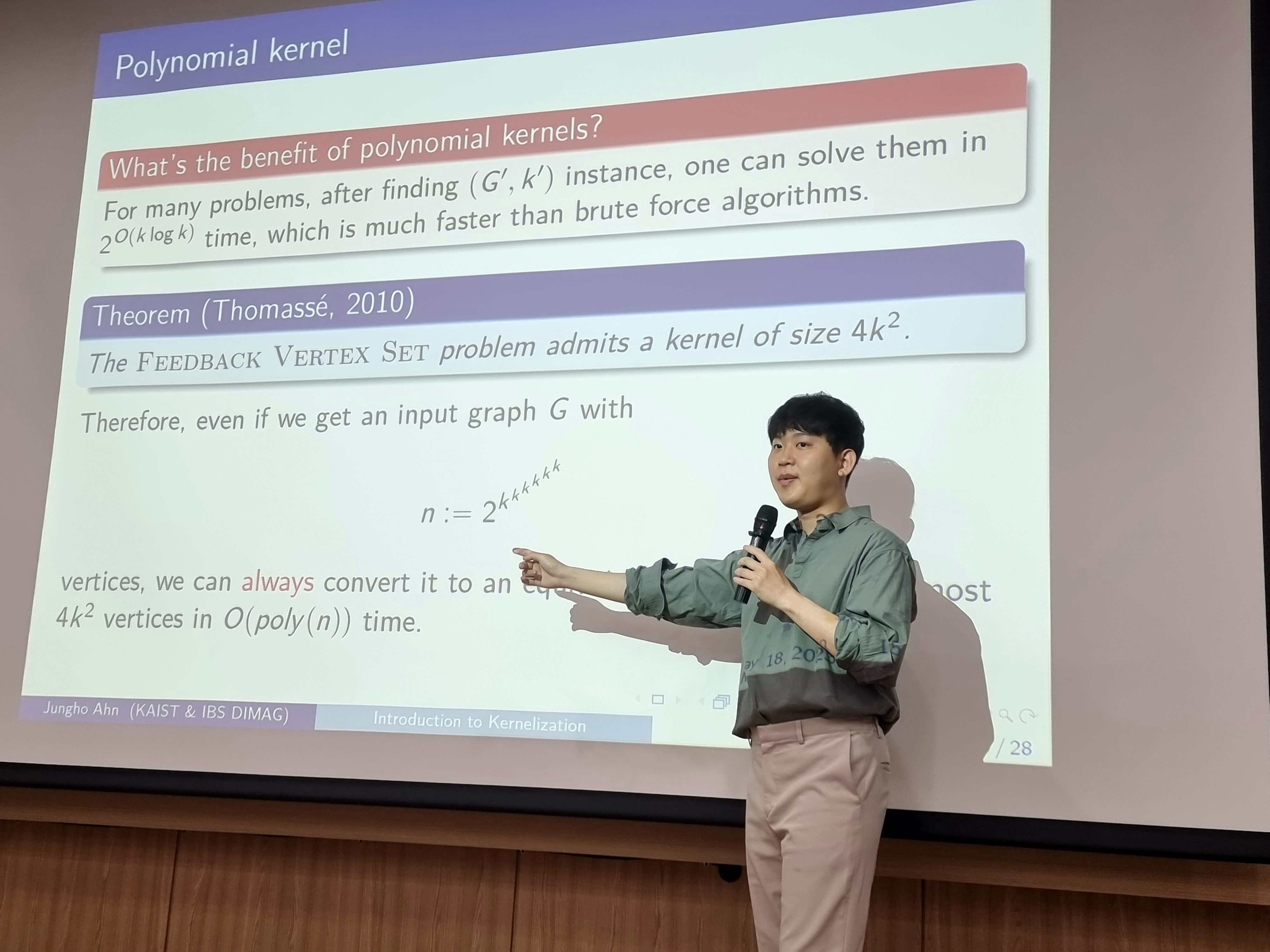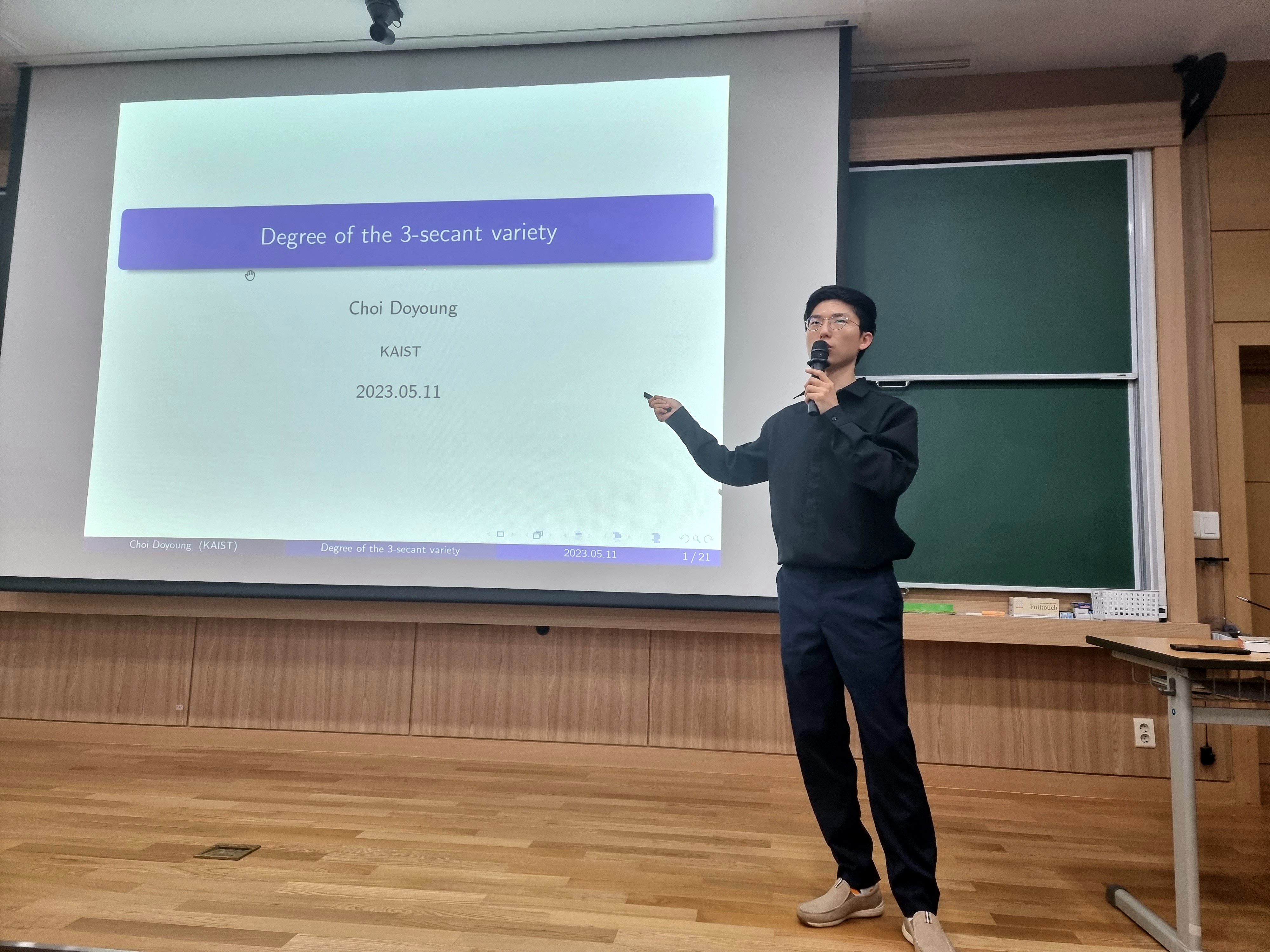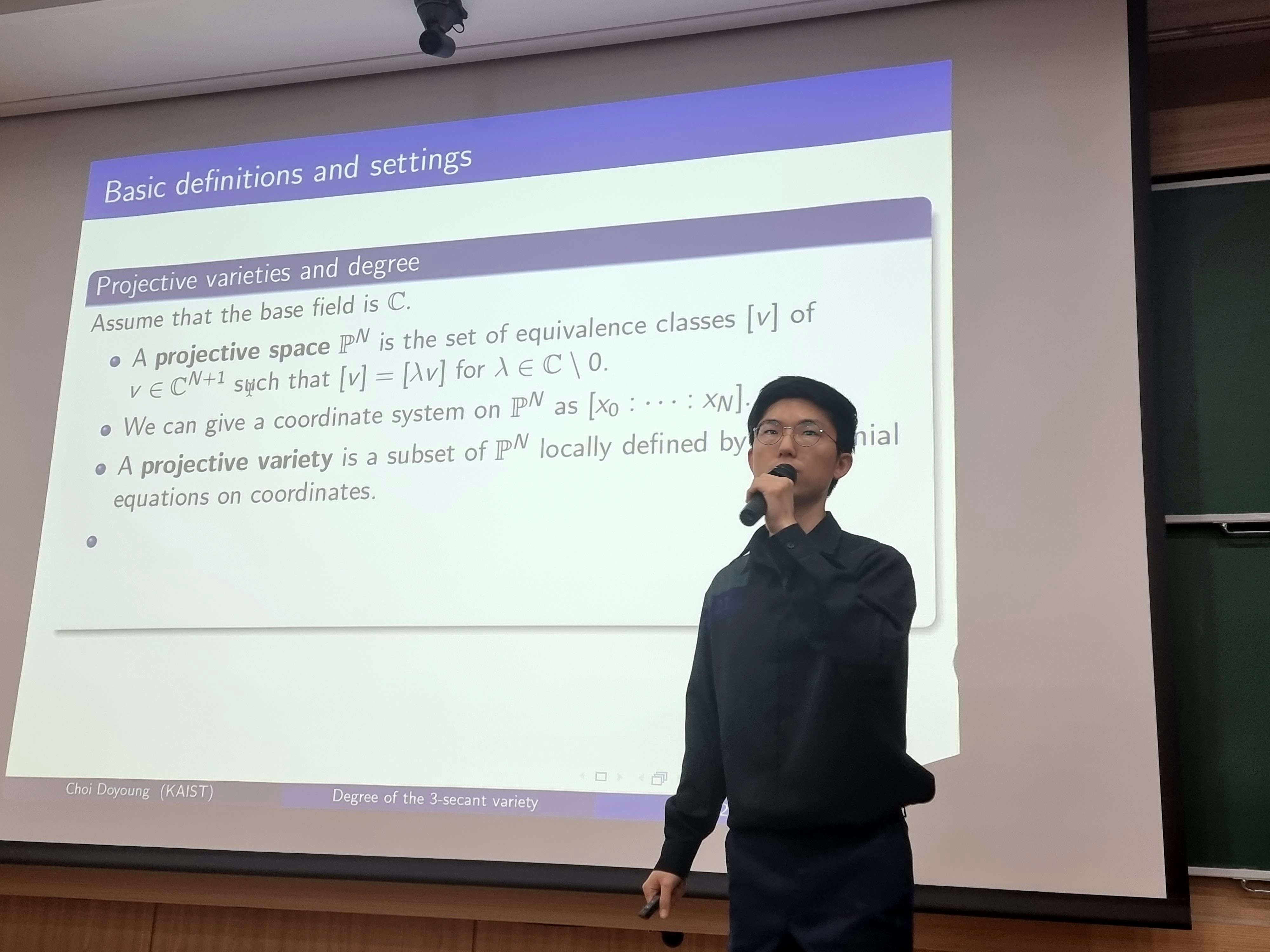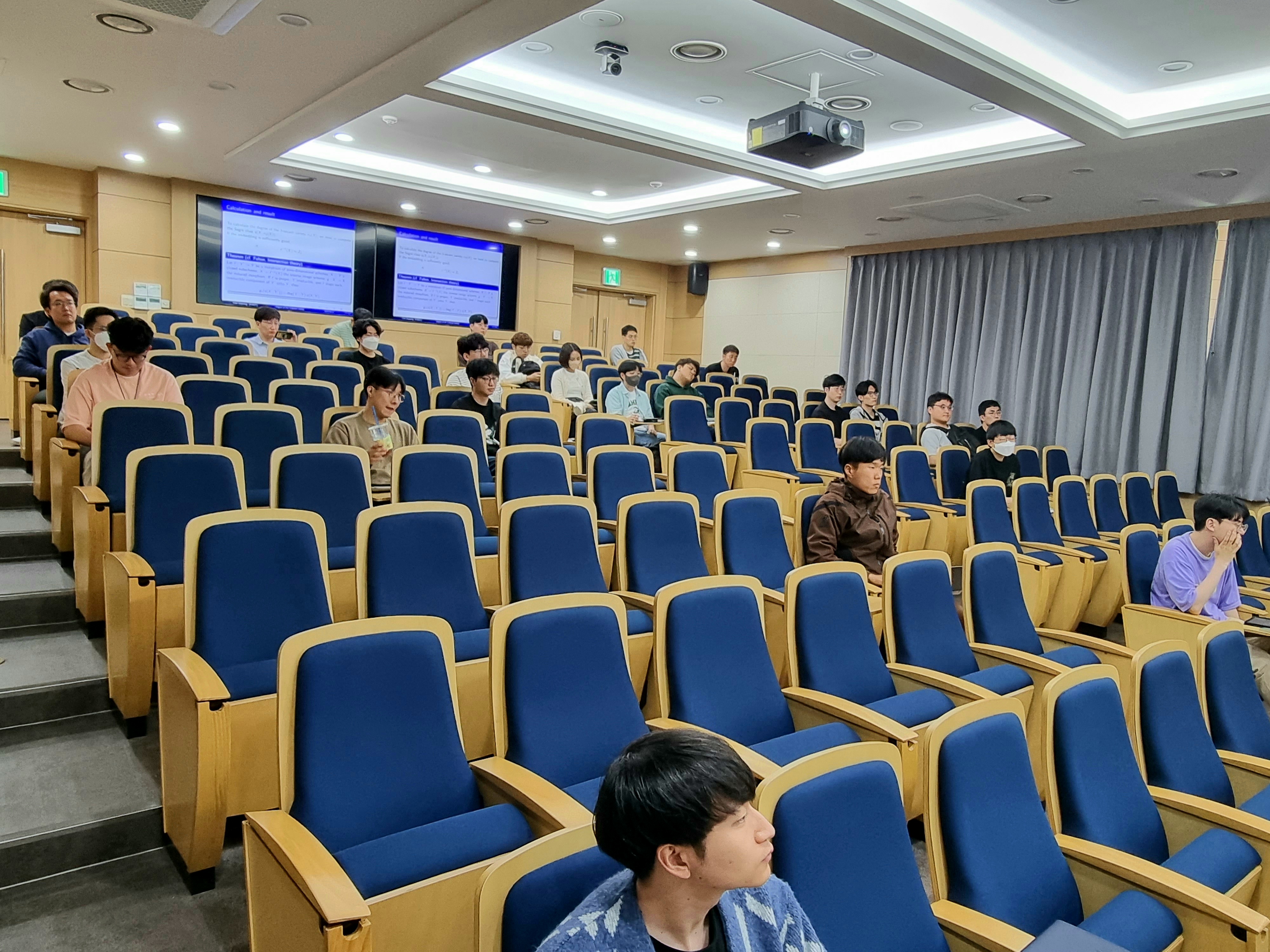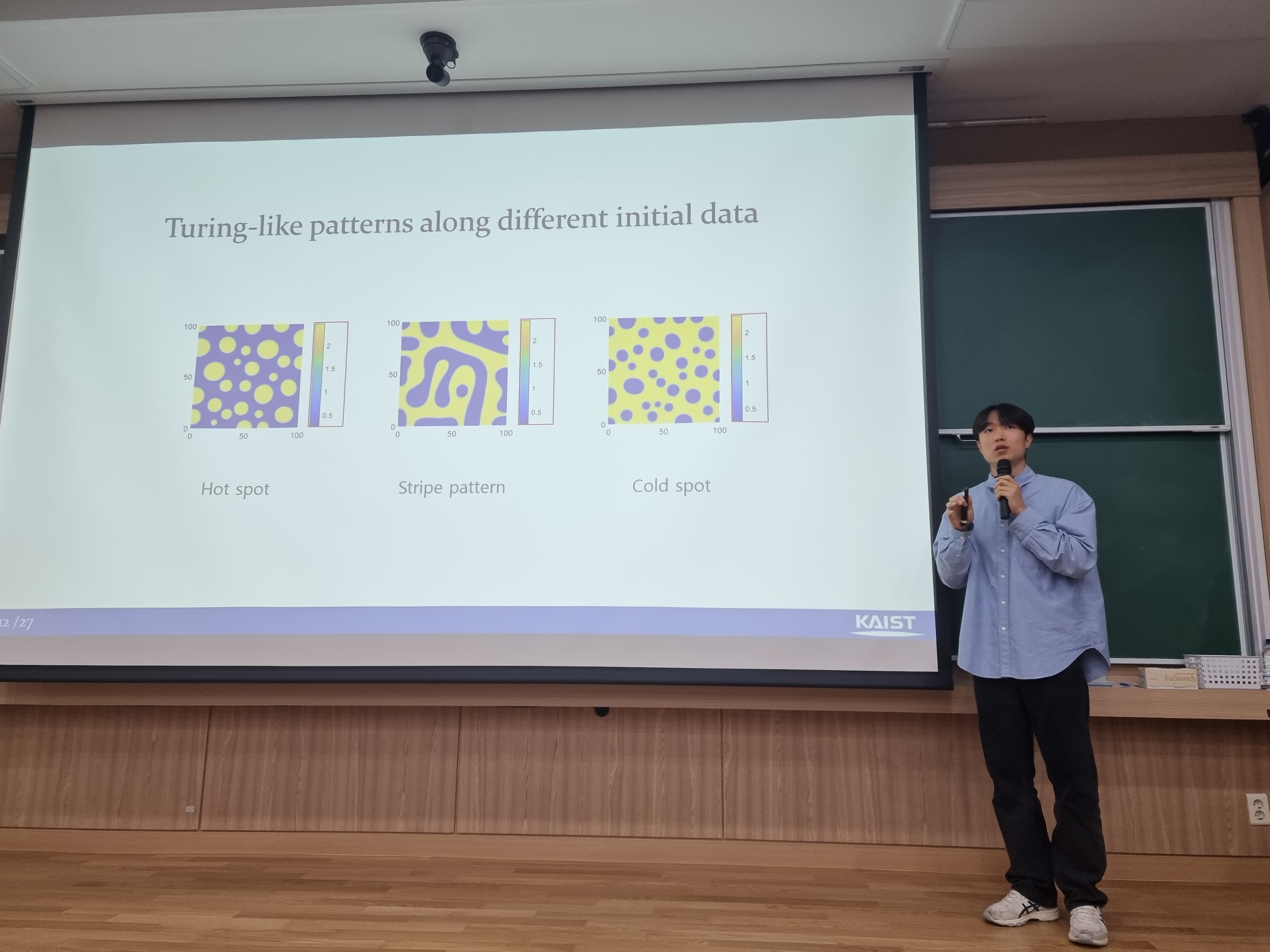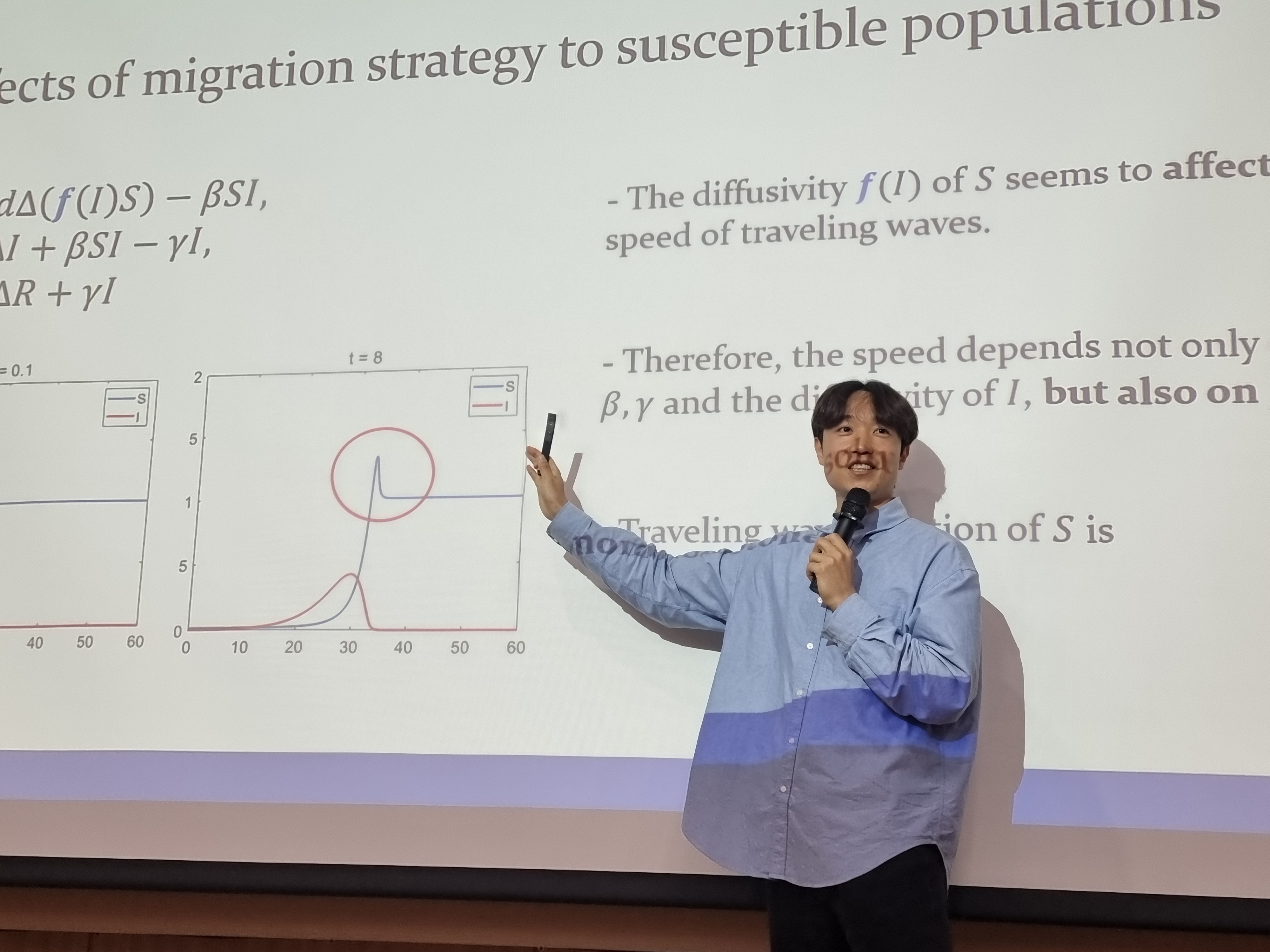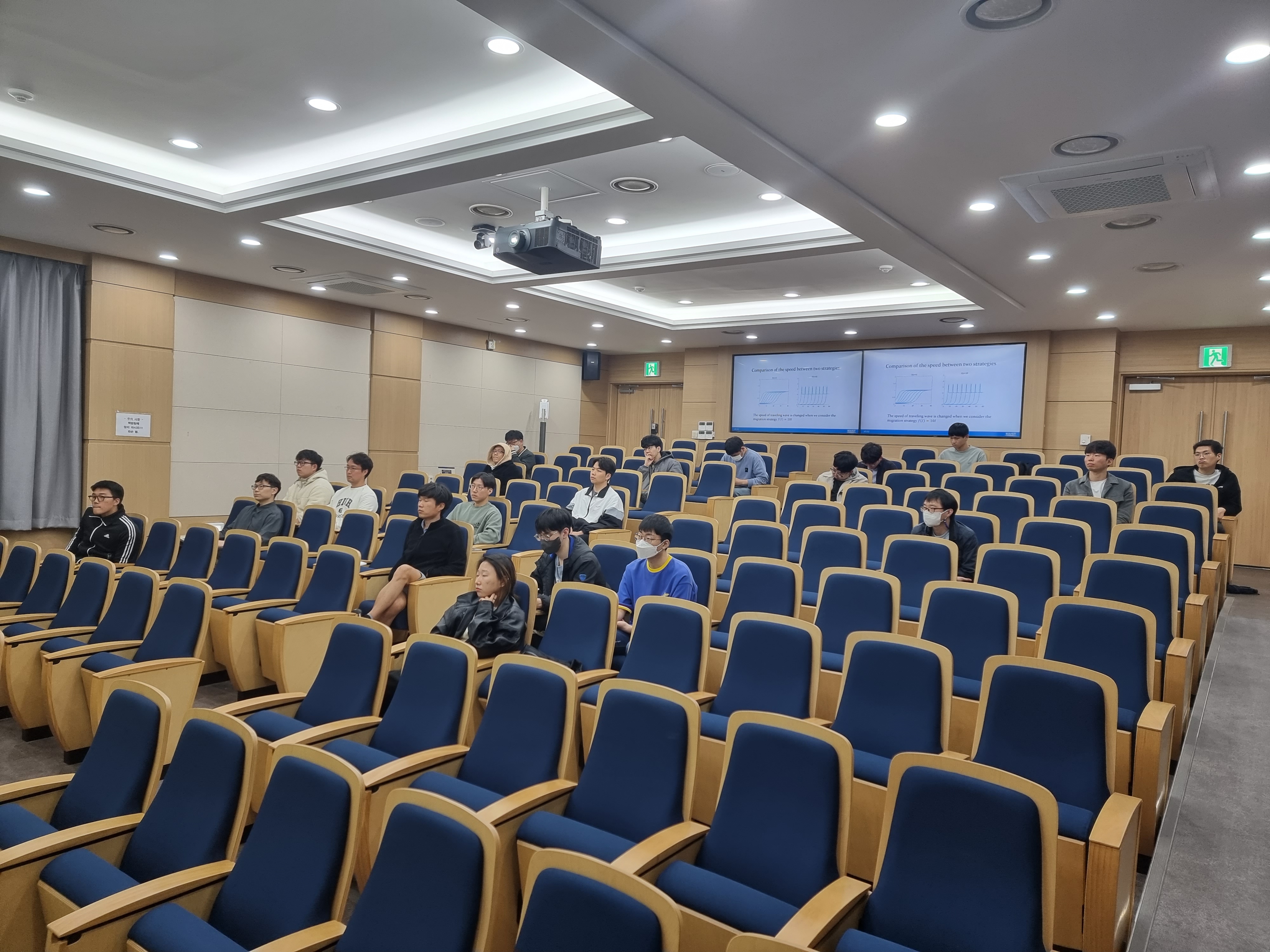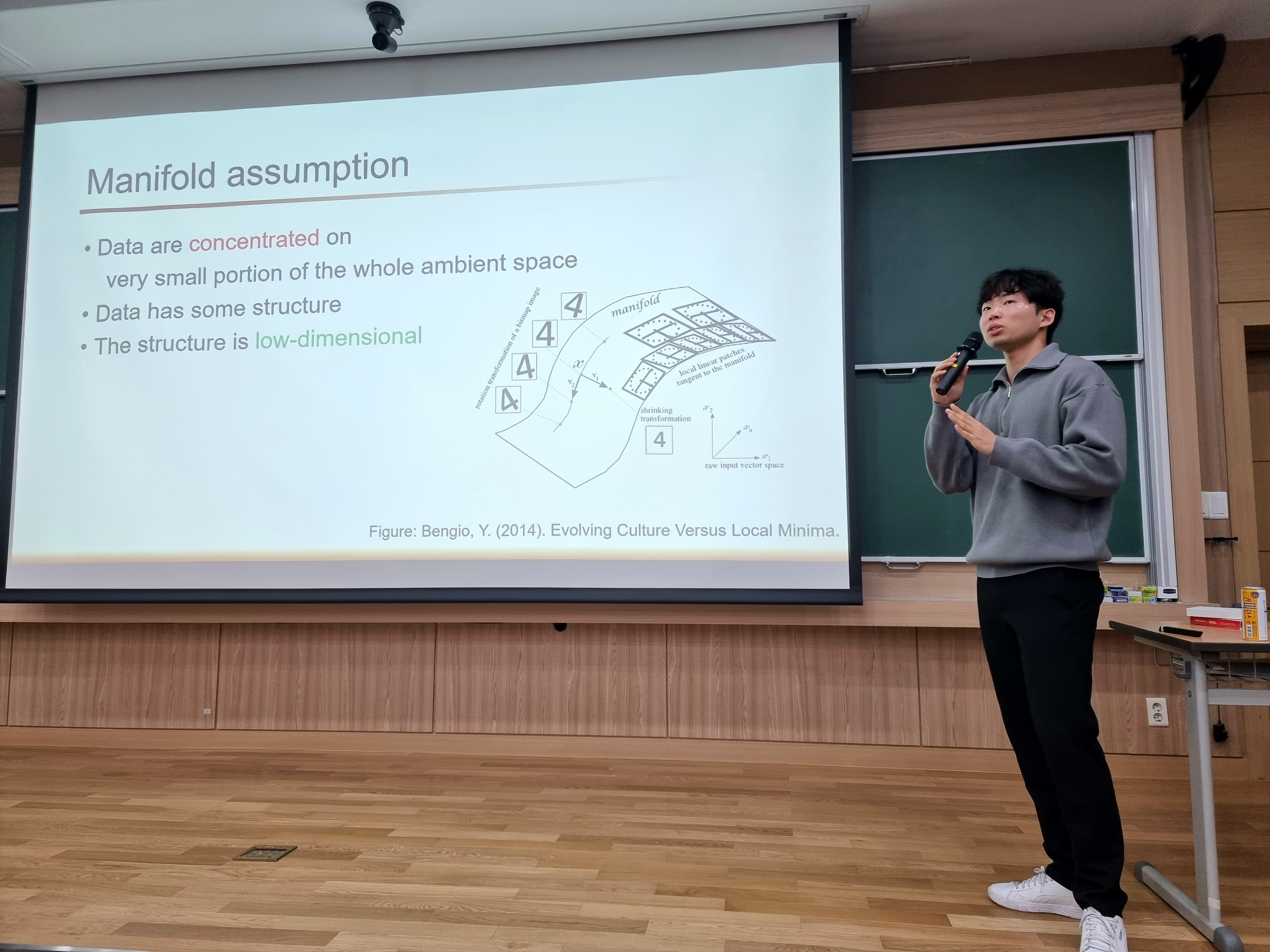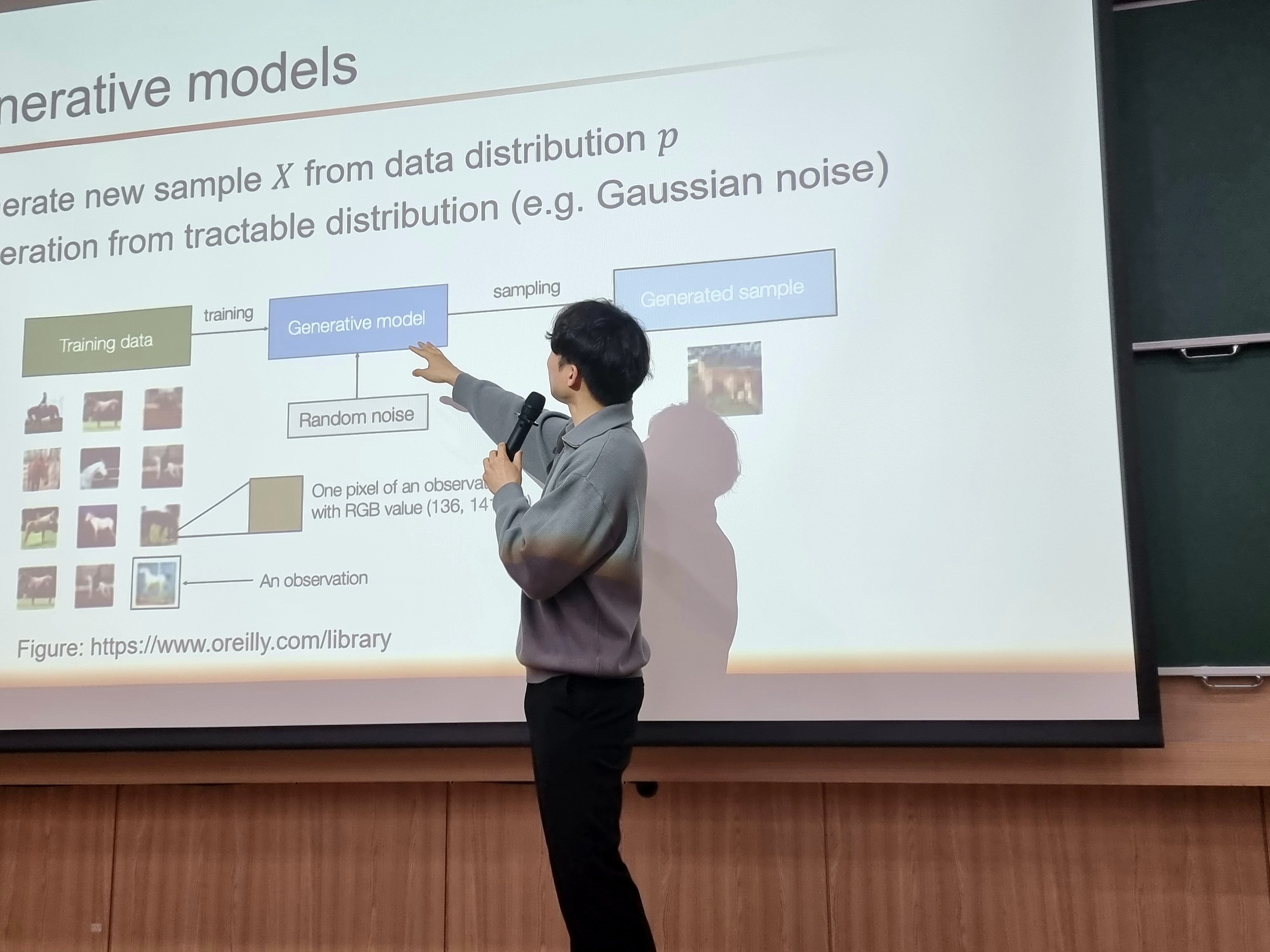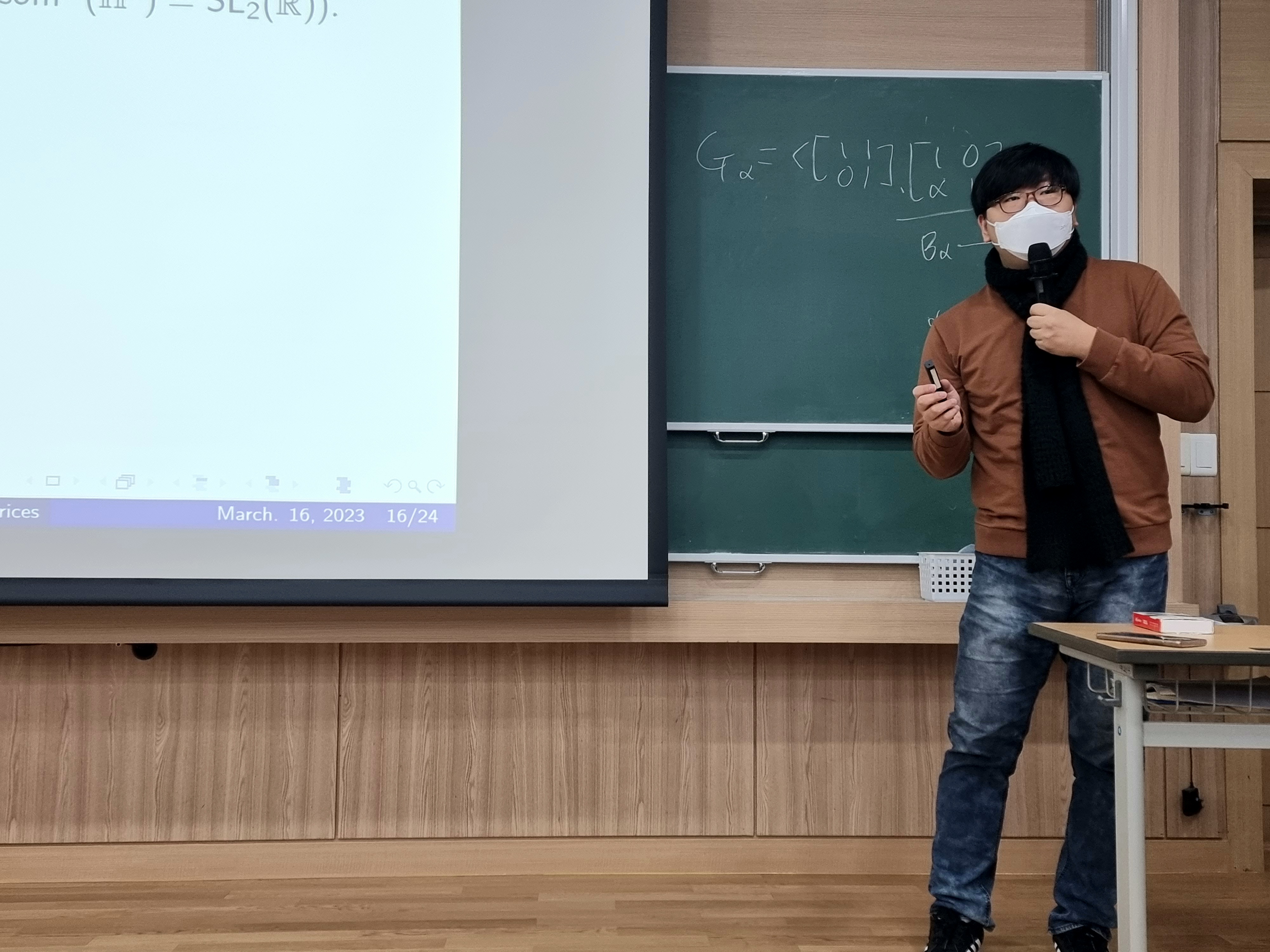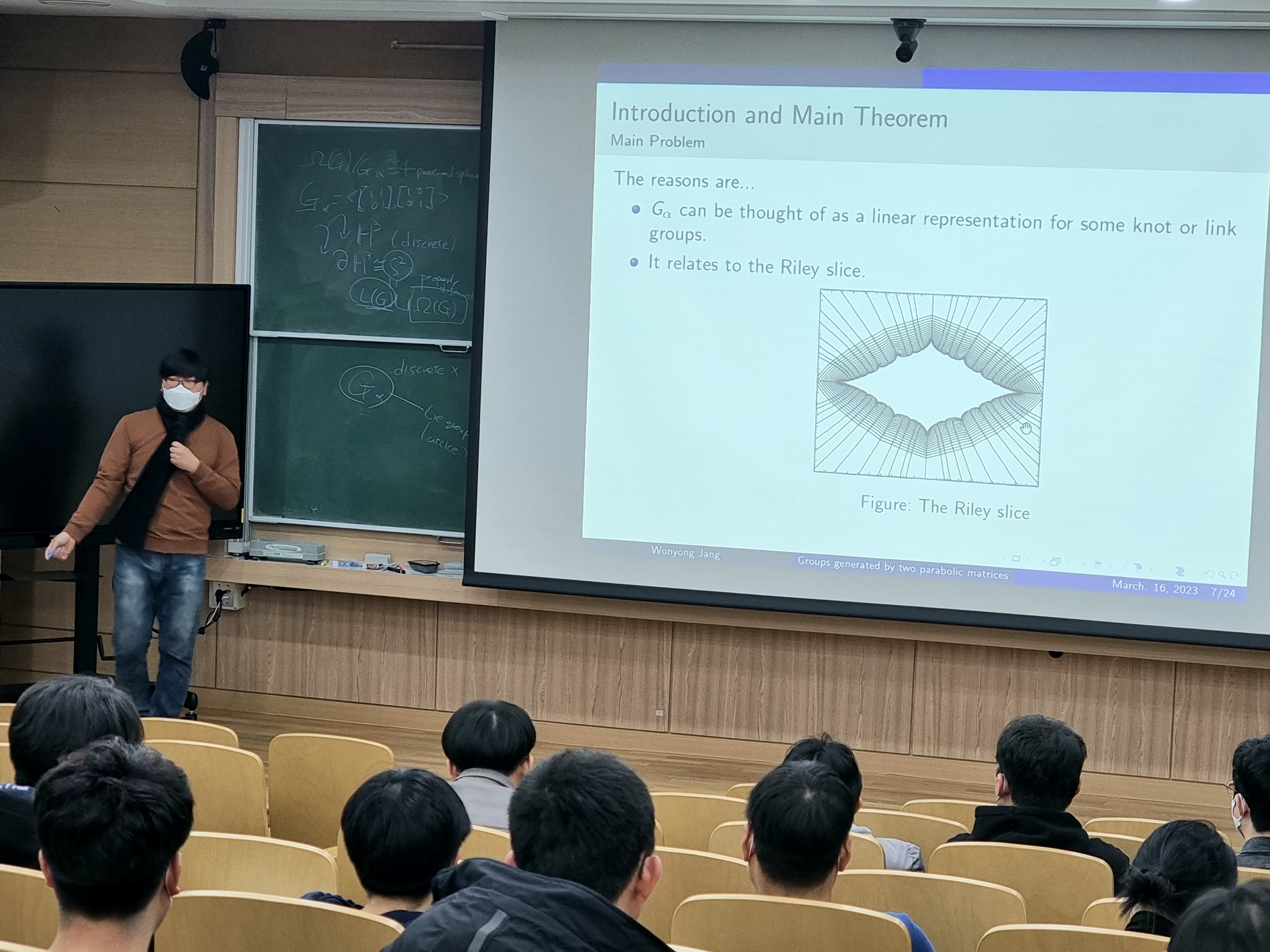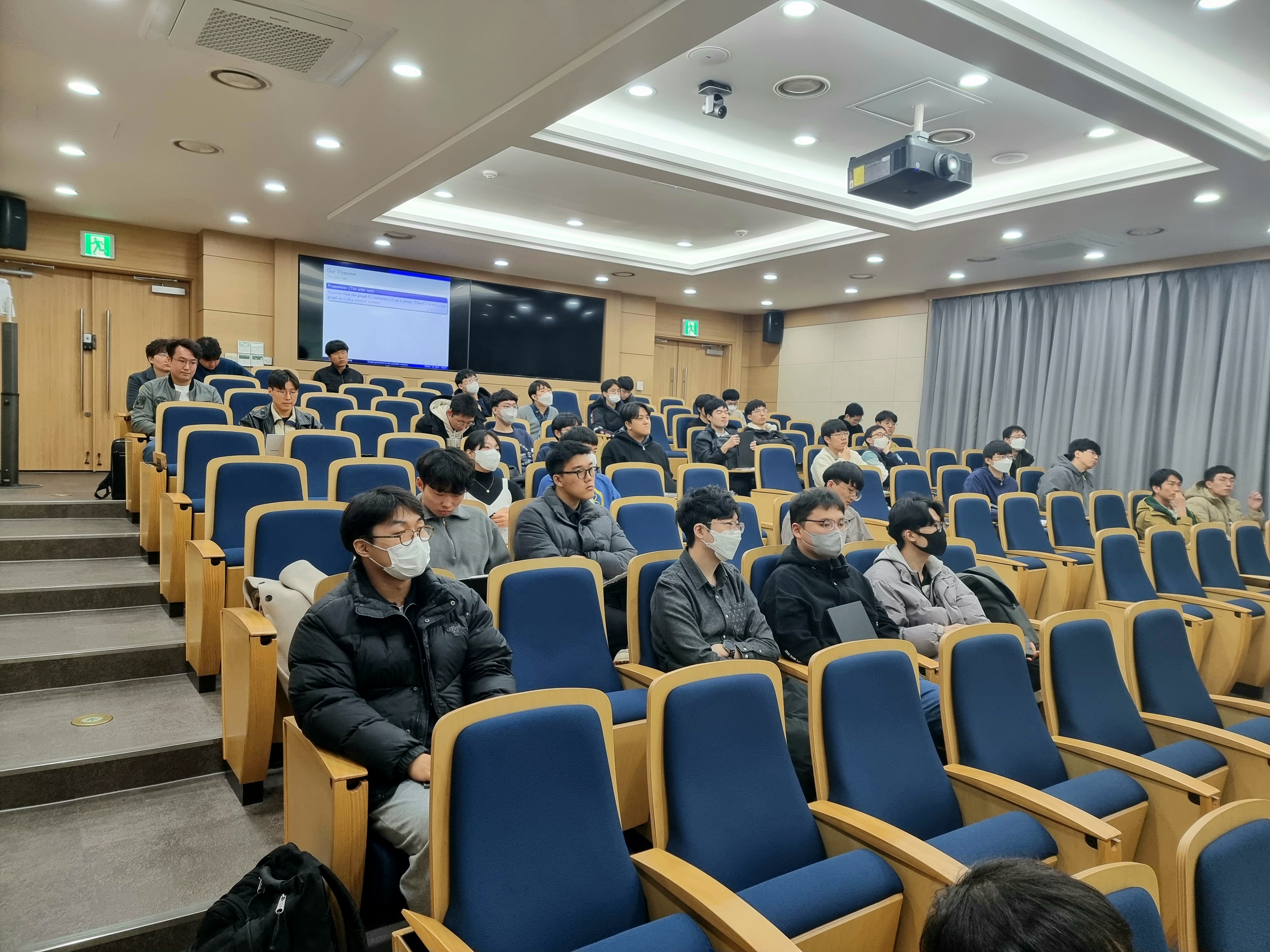The 21st KMGS will be held on June 1st, Thursday, at Natural Science Building (E6-1) Room 1501.
We invite a speaker Hansol Kim from the Dept. of Mathematical Sciences, KAIST.
The abstract of the talk is as follows.
Slot (AM 11:50~PM 12:30)
[Speaker] 김한솔 (Hansol Kim) from Dept. of Mathematical Sciences, KAIST, supervised by Prof. 임보해 교수님 (Bo-Hae Im)
[Title] Problems on Torsion Subgroups of Elliptic Curves over Number Fields
[Discipline] Number Theory
[Abstract]
We introduce elliptic curves, their Mordell-Weil group structure, and isogenies over number fields. At the last of the talk, some results on the torsion subgroups of Mordell-Weil groups of elliptic curves defined over a number field will be given.The results are joint works with my advisor Bo-Hae Im.
[Language] Korean
